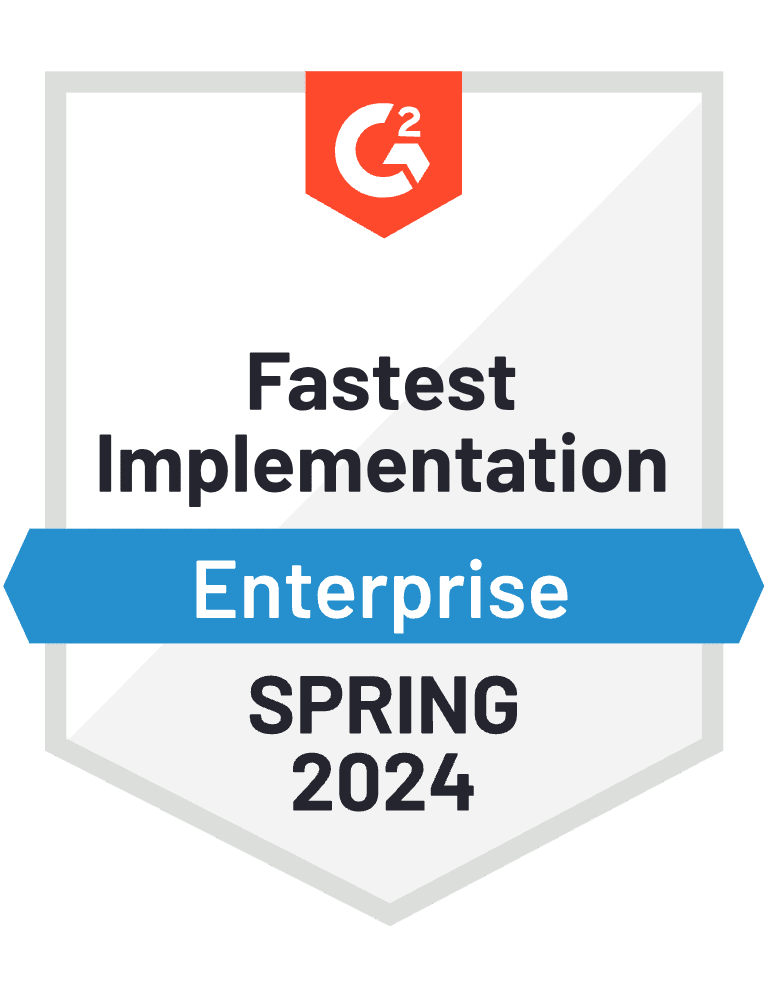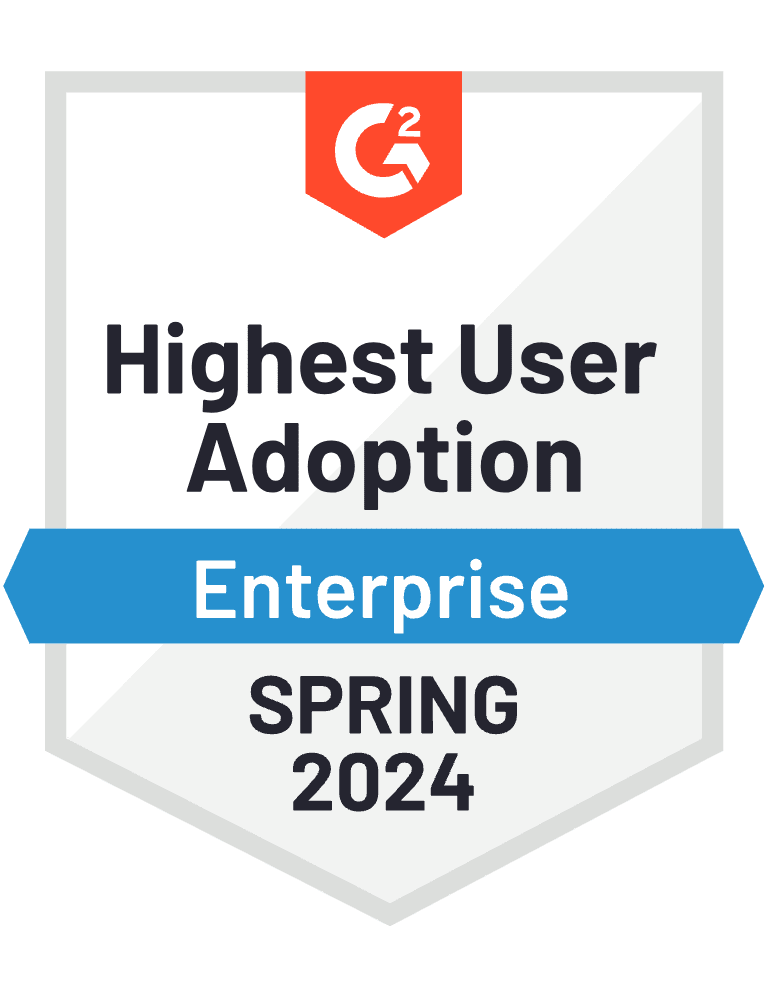Winning new business often hinges on the quality and efficiency of responses to Requests for Proposals (RFPs). As the industry evolves, forward-thinking firms are turning to artificial intelligence (AI) and machine learning (ML) to revolutionize their RFP processes.
Today, we’ll explore how asset management companies can leverage these cutting-edge technologies to create more compelling, accurate, and timely RFP responses, ultimately increasing their win rates and growing their business.
A Quick Refresher: RFPs in Asset Management
RFPs are a critical component of the asset management industry, serving as the primary method for institutional investors, pension funds, and other large entities to select asset managers. These documents typically require detailed responses covering a wide range of topics, including investment strategies, performance history, risk management practices, and operational capabilities.
Responding to RFPs is often a time-consuming and resource-intensive process, requiring input from various departments and careful attention to detail. The complexity and volume of RFPs can strain even the most well-staffed organizations, leading to potential errors, inconsistencies, or missed opportunities.
AI (artificial intelligence) and ML (machine learning) technologies offer a transformative approach to RFP management, automating many aspects of the process and providing valuable insights to improve response quality. By implementing these technologies early, here’s what your firm unlocks:
- Automate data gathering and crafting of standard responses
- Analyze historical RFP data to identify winning patterns and strategies
- Enhance the accuracy and consistency of responses across multiple RFPs
- Predict the likelihood of success for specific opportunities
- Optimize resource allocation based on opportunity prioritization
Key AI and ML Technologies for RFP Optimization
Several AI and ML technologies are particularly relevant for improving RFP responses. Natural Language Processing (NLP) algorithms play a crucial role by analyzing RFP questions, understanding their intent, and suggesting relevant responses from a knowledge base. This technology can also help in summarizing lengthy documents and extracting key information, significantly reducing the time spent on manual review.
Machine Learning Classification models enhance efficiency by categorizing RFP questions and automatically routing them to the appropriate subject matter experts within the organization. This ensures that each part of the RFP is addressed by the most qualified team members, improving the overall quality of the response.
Advanced language models capable of text generation are increasingly being used to assist in drafting responses. These models ensure consistency in tone and style while reducing the workload on human writers. However, it’s important to note that human oversight remains crucial to maintain accuracy and nuance in the final output.
Sentiment Analysis technology assesses the tone and sentiment of RFP questions, providing valuable insights that help teams tailor their responses to address any underlying concerns or preferences of the potential client. This nuanced approach can significantly improve the relevance and persuasiveness of RFP responses. Additionally, leveraging LLMs (Large Language Models) can further enhance this process by offering advanced language understanding and context-aware suggestions, ensuring that responses are not only sentiment-aligned but also highly relevant and accurate.
Implementing AI and ML in Your RFP Process
Implementing AI and ML into your RFP process requires a strategic approach. Begin by assessing your current RFP process, identifying pain points, inefficiencies, and areas where AI could add the most value. This analysis will guide your implementation strategy and help prioritize which technologies to adopt first.
Building a comprehensive knowledge base is a critical step. Centralize your RFP responses, product information, and other relevant data in a structured format that can be easily accessed by AI systems. This database will serve as the foundation for many AI-powered functions and will improve over time as more data is added and refined. Plus you have visibility into when content was updated, who updated it, and can be sure it is approved.
When selecting AI/ML tools, solutions that align with your specific needs and integrate well with your existing systems should take priority. Consider factors such as scalability, customization options, and vendor support. It’s often beneficial to start with a pilot project to test the effectiveness of the chosen solution before a full-scale implementation. If you can utilize a tool’s sandbox to test it out, even better.
Training your AI models is a crucial phase. Use historical RFP content to train your ML models, ensuring they understand your unique business context and industry-specific terminology. This process may require several iterations and ongoing refinement as new content becomes available.
Implement a hybrid approach that combines AI-generated content with human expertise. This ensures accuracy and maintains a personal touch in your responses. Human oversight is particularly important for complex or sensitive topics that require nuanced understanding.
Continuously monitor and refine your AI-powered RFP process. Regularly assess its performance, gather feedback from your team and clients, and use these insights to improve your models and processes. Remember that implementing AI is an ongoing journey of optimization and improvement.
Benefits of AI-Powered RFP Responses
Let’s talk for a moment about the competitive edge that implementing AI and ML in your RFP process can yield for your firm. One of the most immediate advantages is increased efficiency. By automating time-consuming tasks such as data gathering and initial draft creation, AI frees up your team to focus on high-value activities and strategic thinking. This not only improves productivity but also enhances job satisfaction as employees engage in more meaningful work.
Improved accuracy is another key benefit. Leveraging a centralized knowledge base and automated data population reduces errors and inconsistencies in responses. This is particularly valuable in the highly regulated asset management industry, where precision is paramount. AI systems can ensure the latest compliance requirements and product information are consistently reflected across all RFP responses.
Enhanced customization is a significant advantage of AI-powered RFP processes. Advanced AI systems can analyze client-specific requirements and preferences, allowing you to tailor responses more effectively to each client’s needs. This level of personalization can significantly improve your win rates by demonstrating a deep understanding of the client’s unique situation.
Better resource allocation is achieved through AI-driven insights. By prioritizing opportunities based on predictive analytics, you can focus your efforts on RFPs with the highest likelihood of success. This strategic approach maximizes the return on your team’s time and effort, improving overall efficiency and success rates.
Faster turnaround times are a natural outcome of AI implementation. The ability to accelerate the RFP response process allows you to submit high-quality proposals more quickly, often beating competitors to the punch. In the fast-paced world of asset management, this speed can be a significant differentiator.
Perhaps most importantly, AI enables continuous improvement of your RFP process. By learning from past successes and failures, AI systems can help you refine your approach over time, constantly improving your RFP strategies and outcomes.
The Current Limits of AI for Asset Management
While AI and ML offer significant advantages, there are challenges to consider in their implementation. Data quality and quantity are still primary concerns. Effective ML models require large amounts of high-quality, relevant data. Firms must invest in robust data collection and management practices to ensure their AI systems have the necessary fuel to function effectively.
Integration with existing systems can also be complex. Ensuring smooth integration with current CRM, document management, and other relevant systems often requires careful planning and execution. It may necessitate updates to existing infrastructure or processes, which can be time-consuming and potentially disruptive in the short term.
Maintaining the human touch is a delicate balance. While AI can greatly enhance efficiency and consistency, it’s crucial to avoid generic-sounding responses. The technology simply isn’t on par with human-generated content (yet), so human oversight and input remain essential to inject creativity, empathy, and understanding into RFP responses.
Above all, compliance and security considerations are paramount, especially in the highly regulated asset management industry. Firms must ensure that AI-powered processes comply with industry regulations and maintain data security. This may require ongoing monitoring and adjustment as regulatory landscapes evolve.
Change management is often one of the most significant challenges. Implementing new technologies may face resistance from staff accustomed to traditional methods. Comprehensive training programs and clear communication about the benefits of AI can help overcome this resistance and ensure successful adoption.

How AI Will Evolve: The Near Future
As AI and ML technologies continue to improve, we can expect to see exciting developments in their application to RFP processes. More sophisticated language models capable of generating highly nuanced and context-aware responses are on the horizon. These advanced models will be able to capture subtle industry trends and client preferences, further enhancing the quality and relevance of RFP responses.
We’re likely to see improved integration of AI with other emerging technologies. For instance, blockchain could be used in conjunction with AI to enhance data security and transparency in the RFP process. This could provide clients with greater confidence in the integrity of the information provided.
Advanced visualization tools are another area of potential growth. For those of us plugged into this space, watching the progress that has been made over just the past year or two has been fascinating. We may soon see AI systems that can automatically generate compelling charts and graphs to support RFP responses, making complex data more accessible and impactful. This could significantly enhance the persuasiveness of proposals.
The increased use of AI-powered chatbots to handle initial client inquiries and qualify leads before the formal RFP process is another trend to watch. These systems could (and in many cases, already are) streamline the early stages of client engagement, allowing human staff to focus on more complex interactions.
Finally, we’re likely to see a greater emphasis on explainable AI. As these systems become more integral to business processes, there will be a growing need to understand and communicate the reasoning behind AI-generated recommendations. This transparency will be crucial for maintaining trust with both internal teams and clients.
RocketDocs Intelligence: A Unique Approach To AI
The integration of AI and machine learning into the RFP process represents a significant opportunity for asset management firms to gain a competitive edge. By leveraging RocketDocs’ dual-layer AI solution, which offers private, secure, and robust AI response management features, companies can streamline operations, improve response quality, and gain valuable insights, ultimately increasing your win rates and driving business growth.
Successful implementation requires a thoughtful approach that combines technological innovation with human expertise. RocketDocs’ dual-layer AI ensures that firms can strike the right balance between automation and personalization, while addressing challenges such as data quality and compliance, positioning them to thrive in the evolving landscape of asset management.
As AI and ML continue to advance, staying ahead of emerging trends and continuously refining your approach will be crucial. By embracing RocketDocs’ innovative technologies and fostering a culture of innovation, asset management firms can transform their RFP processes, leading to stronger client relationships and sustained success in a highly competitive industry.







